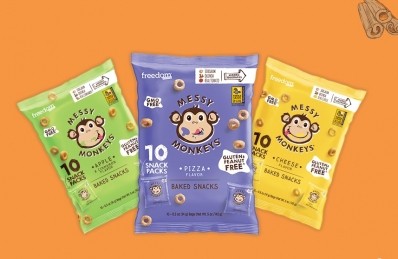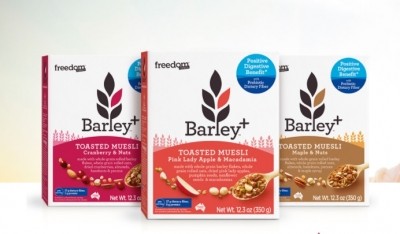Expo West 2018
Not all fiber is created equally, creators of resistant starch-packed Barley+ argue
“The American Institute of Cancer Research released a paper last September, which showed that 47% of incidence of colorectal cancer can actually be prevented through the consumption of whole grains and also through positive lifestyle changes, like exercise,” Angelo De Blasio, marketing manager for Freedom Foods, told FoodNavigator-USA at Natural Products Expo West earlier this month.
But, he said, some grains – and types of fibers – are more beneficial than others, such as BarleyMax – the foundational grain in Freedom Foods Barley+ line of muesli cereal and nutrition bars.
“The type of fiber you eat is almost as important as getting enough fiber per day,” De Blasio said. “The really exciting thing about the Barley+ range is that it contains a grain called BarleyMax that essentially was grown over the last 30 years in Australia … in a direct response to the fact that we have a population crisis in Western countries at the moment” related to digestive health, including colorectal cancer, despite people eating more fiber than ever.
To find out why the incidence of colorectal cancer remained high even as fiber consumption increased, the authors of the American Institute of Cancer Research paper examined which populations around the world had the healthiest guts and lowest incidence of colorectal cancer.
“The found in Africa they have the lowest amount of incidences of colorectal cancer, and that it is because they were eating a specific type of fiber called resistant starch, which is the leading fiber that is the grain that you can find in Barley+,” De Blasio said.
The presence of resistant starch in BarleyMax also is notable because it is a much more convenient form than the cold potatoes and green bananas in which it is found in the African diet.
“Because we have it in a great amount within this grain, we basically formulated it into a great convenient product, which is very similar to granola. So, we have toasted muesli, which uses a number of great delicious ingredients like macadamias, Pink Lady apples and we formulated it into a really tasty product,” he said, adding the line is completely the opposite of “bland tasting, high fiber products that they are not going to want to eat.”

















